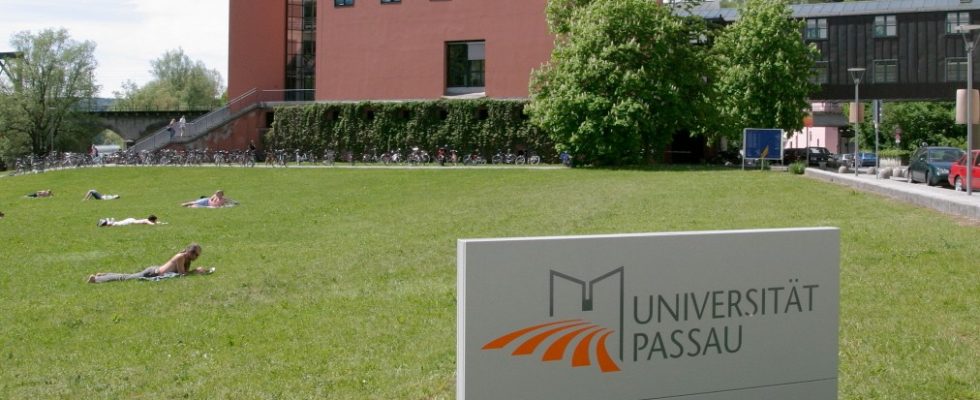You can of course study law at the University of Passau, whose campus is nestled along the Inn. But also write the second state examination here, the passing of which grants the title “fully qualified lawyer”? This should no longer be possible from autumn 2024: Because the Bavarian Ministry of Justice has deleted Passau as an examination location. The students’ enthusiasm about this is “limited”, says student council spokesman Jakob Freier on the phone. “We only found out about it from the press.” Passau is popular with trainee teachers, adds speaker colleague Theresa Schmitt. The waiting list for a place is long, and the university itself did very well in the most recent university ranking.
And yet: If you want to take the second state law examination in Passau in the future, you have to go to Regensburg, for example. It is a good 120 kilometers by car from university to university or one and a half hours by public transport, at best. This is not only met with a lack of understanding among students. And for resistance. “With united forces for Passau!” is the title of a petition campaigning for the preservation of the exam location. The initiator is the Passau criminal law professor Holm Putzke. Named supporters include University Vice President Bettina Noltenius and Chancellor Achim Dilling – as well as Mayor Jürgen Dupper (SPD) and District Administrator Raimund Kneidinger (CSU). A broad alliance, across party and campus boundaries.
But there is also a lot at stake, especially for young legal professionals. The second state exam is particularly difficult in Bavaria and is feared, as it decides your further career. Nine tests of five hours each have to be completed; a result of nine points is considered good in legal circles, with 18 achievable. Candidates can happily do without additional travel stress. But exactly that could soon threaten Passau trainee lawyers, Freier and Schmitt fear. They also sent their concerns to the Ministry of Justice in a letter. “The opportunity to complete the first and second state examination in one place is of immense importance for students and trainee teachers,” the letter says. Many have family obligations or work at the University of Passau. And: The deletion of the location leads to a “disadvantage compared to those examinees who can take the second state exam at their university location”. Because in Nuremberg, Augsburg or Würzburg, for example, everything will remain the same in this regard, and the universities there will continue to test as before.
According to the student council, a good 200 people take notes on the first state examinations in Passau. For the second, there are still 30 to 40. But they are not the only ones who could be affected by the ministerial decision, fears in Passau. The petition warns that the withdrawal of the state examination weakens the entire region “as an outstanding university and judiciary location”. The decision also “contradicts political promises to particularly promote border areas and rural areas in Bavaria instead of the centralized preference for metropolitan areas”. Because in addition to Passau, the Bayreuth location is also up for grabs. Test subjects there would then have to commute to Bamberg or Nuremberg. Not exactly the next way either.
The vast majority of examinees “wish for an electronic exam”
So a competitive disadvantage? The Ministry of Justice justifies the decision with an advantage: that of the e-exam. This electronic type of test – in which special laptops are then used – should soon be possible. When asked by the SZ, the vast majority of examinees “would like an electronic exam”. The associated “personnel and organizational effort” makes “a certain concentration of the test locations necessary” in a flat state like Bavaria. Passau, Bayreuth and also Bamberg have by far the smallest number of examinees. However, the concern is taken seriously and it is therefore being examined whether an expansion of the concept to the original eight test locations is possible. “This depends crucially on the capacities of the service provider.”
In Passau, on the other hand, they are wondering whether it can really be the goal of digitization that some of those affected will end up worse off. And “cost or practicability considerations” – it says in the final part of the petition – could not justify discrimination. The decision should therefore be revised for reasons of fairness alone. Freier and the student council formulated another wish in their letter to the Ministry of Justice: “In such important decision-making processes” in the future, please be “involved”.

